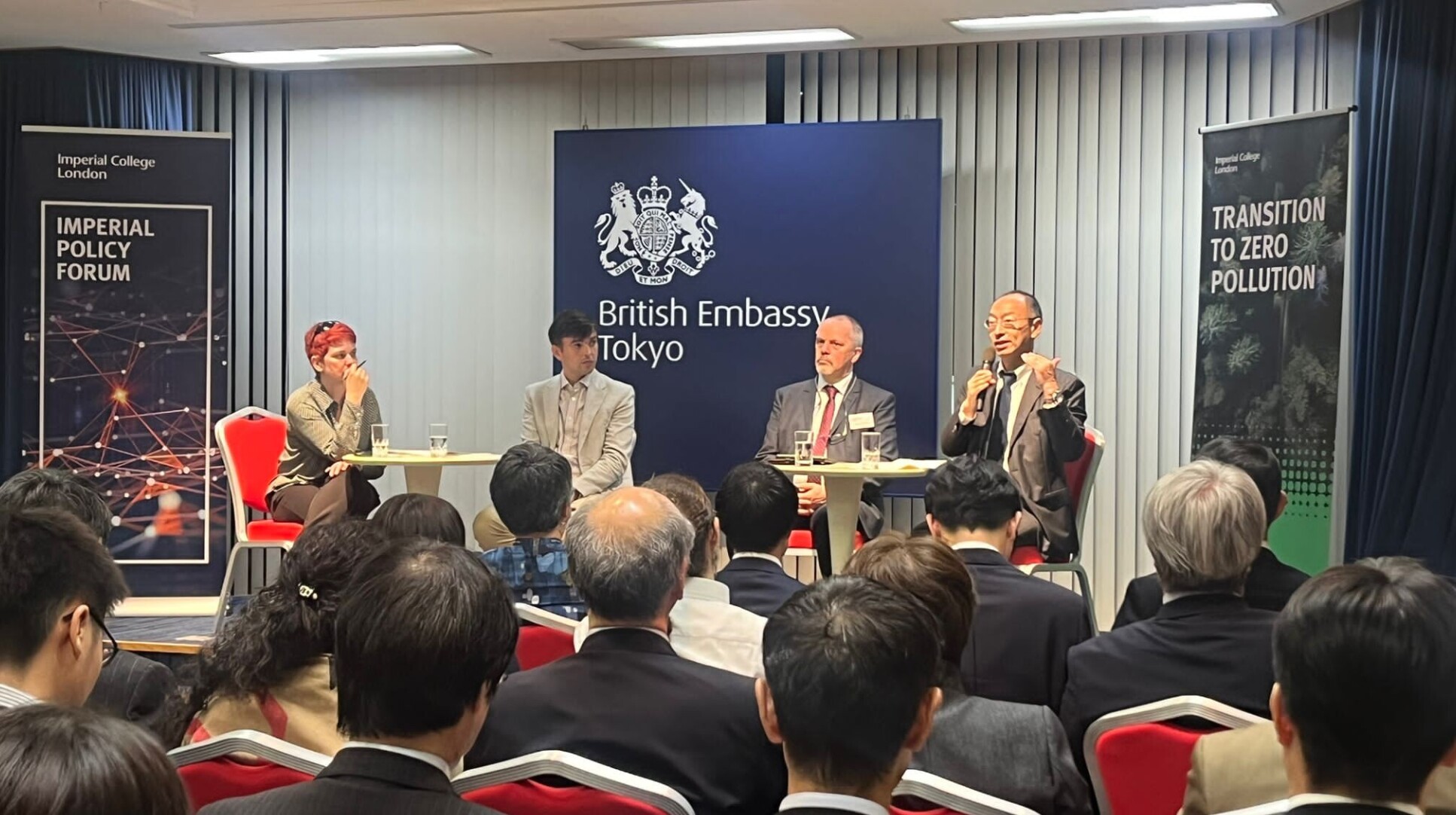Imperial Gathers Expert Panel to Discuss Sustainable Decarbonisation in Island Nations
Imperial has convened a global policy dialogue on sustainable decarbonisation in island nations in Tokyo, Japan.
The event, hosted by the UK Embassy in Japan, fostered discussions around the technology, systems, and economics associated with decarbonising energy, with a specific focus on the unique opportunities and challenges faced by island nations.
Convened ahead of this year’s COP28 conference, the event celebrated the strengthening science and technology ties between the UK and Japan following a landmark new global strategic partnership signed earlier this year at the G7 – The Hiroshima Accord. The event marked the visit of a delegation of sustainability experts from Imperial College London, led by Professor Mary Ryan, Vice Provost (Research and Enterprise) and academic lead for Imperial’s flagship Transition to Zero Pollution Initiative.
The delegation was in Tokyo to further develop the Hitachi and Imperial College London Centre for Decarbonisation and Natural Climate Solutions, which focuses on fundamental and applied research, addressing key challenges in decarbonisation and climate repair in order to achieve a Net Zero future; and to meet with colleagues at the University of Tokyo to discuss cleantech innovation and energy research ahead of COP28.
Margaret Tongue, Minister-Counsellor for Economic Diplomacy at the British Embassy in Tokyo, delivered the opening welcome, highlighting the significance of the UK-Japan strategic relationship and the opportunities for further collaboration for sustainable decarbonisation.
Professor Ryan then chaired an expert panel discussion with Professor Tim Green, Academic Leader for Sustainability and Professor of Electrical Power Engineering at Imperial College London; Mr Eisaku Ito, Executive Vice-President, Chief Technology Officer at Mitsubishi Heavy Industries; and Mr James Hooper, Principal Sustainability Consultant (Asia Pacific) at Mott Macdonald.

The panel discussion was followed by questions and exchanges with senior representatives from industry, academia and government, including Riken, University of Tokyo, Hitachi, Toshiba, NEC, Tokyo Institute of Technology, NEDO, Toshiba, Mitsubishi Research Institute, Science Council of Japan, Japan Atomic Energy Agency, SSE Pacifico, ARUP, World Economic Forum (WEF), The Institute of Energy Economics, Japan, Climate Action Network – Japan, British Chambers of Commerce, UK Embassy in Japan, UK FCDO Science and Innovation Network.
The discussion focused on the key challenges and priorities for sustainable decarbonisation in island nations like the UK and Japan. Participants highlighted priority areas related to grid systems, offshore wind, nuclear power, and hydrogen adoption. The need for comprehensive systems thinking and planning was emphasised, as well as the need to accelerate innovation and commercialisation timelines.
Cleantech innovation
Imperial and the University of Tokyo announced a new strategic relationship for cleantech and energy research in May 2023, announced by UK Prime Minister Rishi Sunak at a UK-Japan business forum ahead of the G7 Summit in Hiroshima. The Presidents of Imperial College London and the University of Tokyo signed the agreement, witnessed by the Executive Chairman and the Chief Technology Officer of Hitachi, Ltd.
Imperial and Mitsubishi Heavy Industries (MHI) have a joint research centre to improve turbocharger design and develop cleaner engines. The MHIET-Imperial Future Boosting Innovation Centre carries out detailed research on state-of-the-art turbocharger and exhaust energy technologies to improve engine performance and operation, and enable low carbon engine technology.

